Free birthing: A closer look at unassisted child birth
From whether it's legal to free birthing stories from real mums, we take a closer look at the alternative method of delivering a child
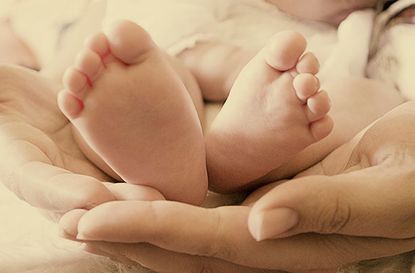

Free birthing has been increasingly in the spotlight over recent months as amazing stories of unassisted child birth hit the headlines and go viral online.
But what really is free birthing? And with these stories of labour and birth coming from all over the world, is this something that is even happening - and legal - in the UK? We took a closer look...
What is free birthing?
The term free birthing is used to describe a woman having a baby without the help of any medical professionals. This means that any mum-to-be who chooses this birth plan and elects for this delivery method would have no clinical monitoring, access to pain relief or the use of modern technologies during labour.
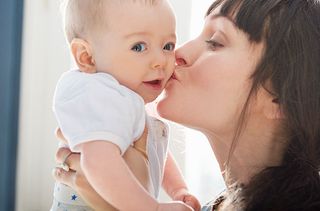
Is free birthing legal in the UK?
According to Dr Daniel Fenton, free birthing is totally legal in the UK.
'In the UK, there is no legal obligation to receive any medical care during pregnancy which makes free birthing legal,' the Medical Director at London Doctors Clinic tells us.
'Having said that, an unqualified person cannot assume the role of a doctor or registered midwife and assume responsibility for delivering a baby, this is illegal. It is the sole responsibility of the pregnant woman to assume responsibility for the birth and any associated complications or consequences.'
Birthrights - an organisation aiming to improve women's experience of pregnancy and childhood by promoting respect for human rights - have too touched on the issue of free birthing.
GoodtoKnow Newsletter
Parenting advice, hot topics, best buys and family finance tips delivered straight to your inbox.
'Women are not obliged to accept any medical or midwifery care or treatment during childbirth and cannot be compelled to accept care unless they lack mental capacity to make decisions for themselves,' a statement on their site reads.
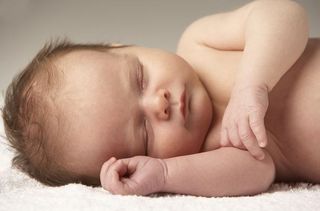
Free birthing at home
While a free birth can take place anywhere, most opt to deliver their child at home.
Some may choose to do this because they want their baby's birth to be very intimate, while others might find the idea of welcoming a little one into the world in a familiar environment appealing.
An unassisted birth at home is not, however, to be confused with a home birth where a midwife will be present. According to the NHS, around 2.3% of women give birth at home in this way.
Free birthing stories
Many mums-to-be use social media as a platform for promoting unassisted births - and it's not hard to see why. A number of free birthing stories have gone viral in recent months. Marissa Heckel decided to try the method with her second child, following an unpleasant experience in hospital with her firstborn. Her husband fully supported her decision.
'We opted out of a midwife due to my stubbornness. I simply do not like anyone trying to tell me what is best for me or my baby,' she posted on Facebook.
'Finances were not the issue in my case. Going unassisted was more of an opportunity for me to prove to others that God made our bodies to birth-that hospitals were never the norm.'
Marissa went on to tell her friends that she delivered her son while sitting on the toilet.
Eliza Darling also opted to swap delivering her baby in hospital for free birthing at home. The Hawaiian yoga instructor opened up about her experience of doing so to her 32,000 followers on Instagram.
'Phoenix Buckley Darling was born in the soft afternoon light at his loving home on 11/11/17. His #freebirth was peaceful, powerful, and primal, witnessed only by his dad, his brother, myself and the divine spirits of all those who've birth since the beginning of time,' she said.
[instagram]
[/instagram] London-based Lacey Haynes is another mum who took to the picture-sharing site with a story.
'With love, devotion, belief and the greatest joy, we free birthed our baby girl Fox into the world at 1am on Monday! Seeing (and feeling) this new human life move from my womb to our world was the most mind-heart-blowing experience of my life!' she gushed.
'I live the path of radicalising motherhood.'
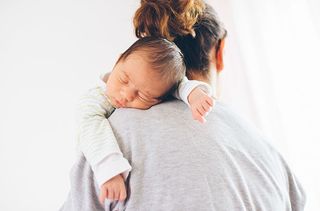
The 'pros' of choosing free birthing
The real-life mums who opened up about their free birthing experiences above all have one thing in common.
They believe that the method of delivery empowers women.
'Going unassisted was more of an opportunity for me to prove to others that God made our bodies to birth,' said Marissa Heckel, while Eliza Darling described her free birth as 'peaceful, powerful and primal'.
Lacey Haynes echoed the others' comments, saying her baby's unassisted delivery was a 'mind-heart-blowing experience'.
Dr Clare Morrison at MedExpress discussed how women who are pro free birthing might react in this way.
'Those in favour of this type of birth will point out that it is natural, and it's how humans gave birth throughout history until relatively recently,' she tells us.
'Indeed it's how many still give birth in many parts of the world, where medical facilities are few and far between. They will also argue that it reduces the risk of unnecessary procedures, and the woman will feel more at ease and in control.'
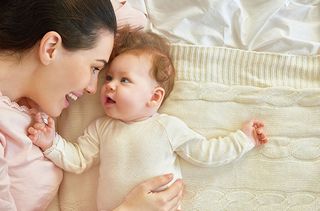
The 'cons' of free birthing
Despite acknowledging that it's legal in the UK, for Dr Clare Morrison free birthing isn’t without its pitfalls.
'Those in favour of this type of birth will point out that it is natural, and it's how humans gave birth throughout history until relatively recently,' she tells us.
'Indeed it's how many still give birth in many parts of the world, where medical facilities are few and far between. They will also argue that it reduces the risk of unnecessary procedures, and the woman will feel more at ease and in control.'
The GP from Hampshire continues by highlighting the possible dangers that might arise from this method of delivery.
'However, childbirth is notoriously unpredictable, and things can and do go wrong, sometimes with no warning. For example, the shoulders might get stuck, the baby may become distressed, or the cord might prolapse. If prompt medical intervention isn't possible, the baby - and even the mother - could be at risk of dying. In fact, in countries where women give birth without medical care, the neonatal and maternal mortality rates are significantly higher than they are in developed countries,' she adds.
'If something did go wrong, and medical intervention was refused despite the risk, it could be argued that the mother has endangered the life of her baby. It is very rare for a mother to be prosecuted under these circumstances, but it has happened on occasion, for example when a mother refused to have a caesarian, despite being strongly advised to do so, and the baby died.'

A midwife's view on free birthing
Liz Halliday, Deputy Head of Midwifery at Private Midwives, believes that many women opting for free births do so because of a break down in the relationship between the mum-to-be and medical professionals.
'I fully support any woman's fully informed choice to birth how and wherever she feels is safest and best for her and her baby. The issue for me is why women are choosing to free birth, as we often find it is due to a lack of trust in their care providers,' she explains.
'As care providers it is our responsibility to foster a strong partnership where the woman is at the centre of decision-making. We often find that trust follows that, proving that free birth doesn't need to be the only option.'
Despite the fact most women need little assistance from midwives during labour, Liz is keen to point out free birthing doesn't come without risks.
'Birth is unpredictable and that is where a midwife's skills can be very valuable. Although women often know when something is wrong and can access timely assistance, incidents such as shoulder dystocia or post-partum haemorrhage are not predictable and require quick intervention on the midwife's part in order to facilitate a favourable outcome,' she continues.
'Midwives are highly trained professionals and can provide life saving expertise appropriately and effectively, whilst also carrying a variety of specialist and necessary equipment for the rare cases in which it may be required.'
Trusted, informative, and empathetic – GoodToKnow is the ultimate online destination for mums. Established in 2007, our 15-year-strong archive of content includes more than 18,000 articles, 1,500 how-to videos, and 7,000 recipes.
-
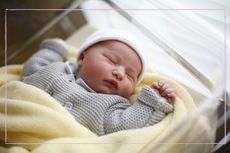 Top 20 rare baby names for 2024 revealed, with some celestial and regal entries
Top 20 rare baby names for 2024 revealed, with some celestial and regal entriesParents looking for rare baby names need look no further - these 20 monikers fit the bill for being unique while remaining suitably understated.
By Lucy Wigley Published
-
 Prince George is ‘a chip off the old block’ says body language expert as she highlights the similarities between him and his dad Prince William
Prince George is ‘a chip off the old block’ says body language expert as she highlights the similarities between him and his dad Prince WilliamThe father/son duo share an incredibly close bond
By Charlie Elizabeth Culverhouse Published